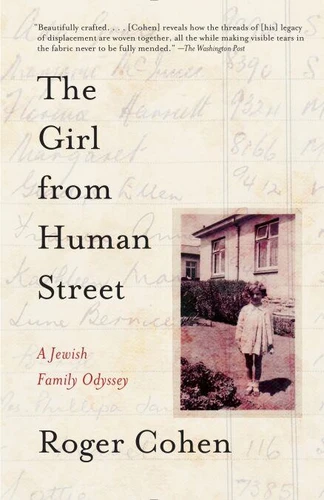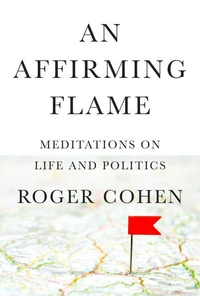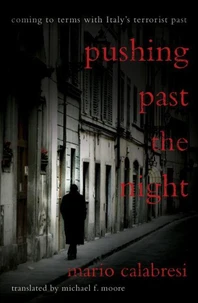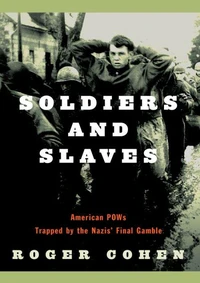The Girl from Human Street. Ghosts of Memory in a Jewish Family
Par :Formats :
Disponible dans votre compte client Decitre ou Furet du Nord dès validation de votre commande. Le format ePub protégé est :
- Compatible avec une lecture sur My Vivlio (smartphone, tablette, ordinateur)
- Compatible avec une lecture sur liseuses Vivlio
- Pour les liseuses autres que Vivlio, vous devez utiliser le logiciel Adobe Digital Edition. Non compatible avec la lecture sur les liseuses Kindle, Remarkable et Sony
- Non compatible avec un achat hors France métropolitaine
 , qui est-ce ?
, qui est-ce ?Notre partenaire de plateforme de lecture numérique où vous retrouverez l'ensemble de vos ebooks gratuitement
Pour en savoir plus sur nos ebooks, consultez notre aide en ligne ici
- Nombre de pages320
- FormatePub
- ISBN978-0-385-35313-7
- EAN9780385353137
- Date de parution13/01/2015
- Protection num.Adobe DRM
- Taille7 Mo
- Infos supplémentairesepub
- ÉditeurVintage
Résumé
An intimate and profoundly moving Jewish family history-a story of displacement, prejudice, hope, despair, and love. In this luminous memoir, award-winning New York Times columnist Roger Cohen turns a compassionate yet discerning eye on the legacy of his own forebears. As he follows them across continents and decades, mapping individual lives that diverge and intertwine, vital patterns of struggle and resilience, valued heritage and evolving loyalties (religious, ethnic, national), converge into a resonant portrait of cultural identity in the modern age.
Beginning in the nineteenth century and continuing through to the present day, Cohen tracks his family's story of repeated upheaval, from Lithuania to South Africa, and then to England, the United States, and Israel. It is a tale of otherness marked by overt and latent anti-Semitism, but also otherness as a sense of inheritance. We see Cohen's family members grow roots in each adopted homeland even as they struggle to overcome the loss of what is left behind and to adapt-to the racism his parents witness in apartheid-era South Africa, to the familiar ostracism an uncle from Johannesburg faces after fighting against Hitler across Europe, to the ambivalence an Israeli cousin experiences when tasked with policing the occupied West Bank.
At the heart of The Girl from Human Street is the powerful and touching relationship between Cohen and his mother, that "girl." Tortured by the upheavals in her life yet stoic in her struggle, she embodies her son's complex inheritance. Graceful, honest, and sweeping, Cohen's remarkable chronicle of the quest for belonging across generations contributes an important chapter to the ongoing narrative of Jewish life.
Beginning in the nineteenth century and continuing through to the present day, Cohen tracks his family's story of repeated upheaval, from Lithuania to South Africa, and then to England, the United States, and Israel. It is a tale of otherness marked by overt and latent anti-Semitism, but also otherness as a sense of inheritance. We see Cohen's family members grow roots in each adopted homeland even as they struggle to overcome the loss of what is left behind and to adapt-to the racism his parents witness in apartheid-era South Africa, to the familiar ostracism an uncle from Johannesburg faces after fighting against Hitler across Europe, to the ambivalence an Israeli cousin experiences when tasked with policing the occupied West Bank.
At the heart of The Girl from Human Street is the powerful and touching relationship between Cohen and his mother, that "girl." Tortured by the upheavals in her life yet stoic in her struggle, she embodies her son's complex inheritance. Graceful, honest, and sweeping, Cohen's remarkable chronicle of the quest for belonging across generations contributes an important chapter to the ongoing narrative of Jewish life.
An intimate and profoundly moving Jewish family history-a story of displacement, prejudice, hope, despair, and love. In this luminous memoir, award-winning New York Times columnist Roger Cohen turns a compassionate yet discerning eye on the legacy of his own forebears. As he follows them across continents and decades, mapping individual lives that diverge and intertwine, vital patterns of struggle and resilience, valued heritage and evolving loyalties (religious, ethnic, national), converge into a resonant portrait of cultural identity in the modern age.
Beginning in the nineteenth century and continuing through to the present day, Cohen tracks his family's story of repeated upheaval, from Lithuania to South Africa, and then to England, the United States, and Israel. It is a tale of otherness marked by overt and latent anti-Semitism, but also otherness as a sense of inheritance. We see Cohen's family members grow roots in each adopted homeland even as they struggle to overcome the loss of what is left behind and to adapt-to the racism his parents witness in apartheid-era South Africa, to the familiar ostracism an uncle from Johannesburg faces after fighting against Hitler across Europe, to the ambivalence an Israeli cousin experiences when tasked with policing the occupied West Bank.
At the heart of The Girl from Human Street is the powerful and touching relationship between Cohen and his mother, that "girl." Tortured by the upheavals in her life yet stoic in her struggle, she embodies her son's complex inheritance. Graceful, honest, and sweeping, Cohen's remarkable chronicle of the quest for belonging across generations contributes an important chapter to the ongoing narrative of Jewish life.
Beginning in the nineteenth century and continuing through to the present day, Cohen tracks his family's story of repeated upheaval, from Lithuania to South Africa, and then to England, the United States, and Israel. It is a tale of otherness marked by overt and latent anti-Semitism, but also otherness as a sense of inheritance. We see Cohen's family members grow roots in each adopted homeland even as they struggle to overcome the loss of what is left behind and to adapt-to the racism his parents witness in apartheid-era South Africa, to the familiar ostracism an uncle from Johannesburg faces after fighting against Hitler across Europe, to the ambivalence an Israeli cousin experiences when tasked with policing the occupied West Bank.
At the heart of The Girl from Human Street is the powerful and touching relationship between Cohen and his mother, that "girl." Tortured by the upheavals in her life yet stoic in her struggle, she embodies her son's complex inheritance. Graceful, honest, and sweeping, Cohen's remarkable chronicle of the quest for belonging across generations contributes an important chapter to the ongoing narrative of Jewish life.















